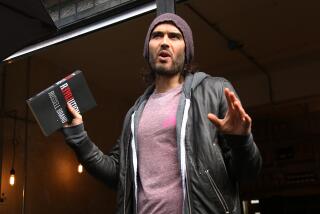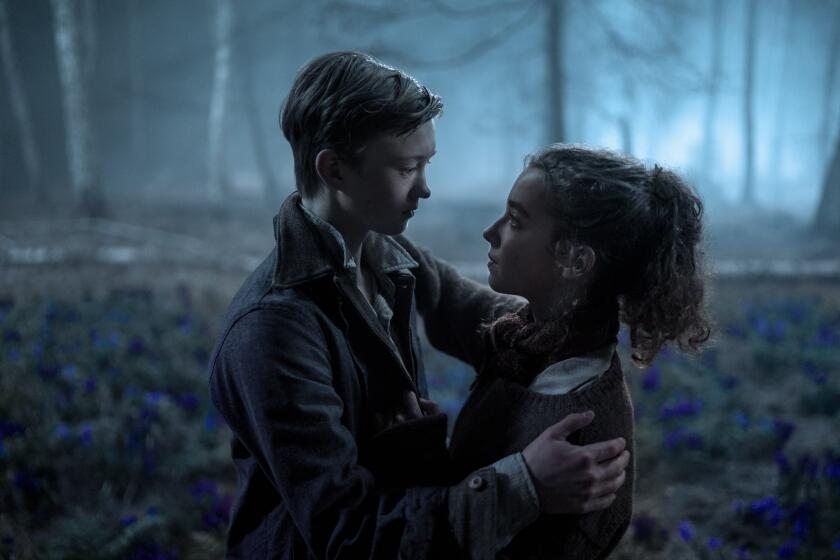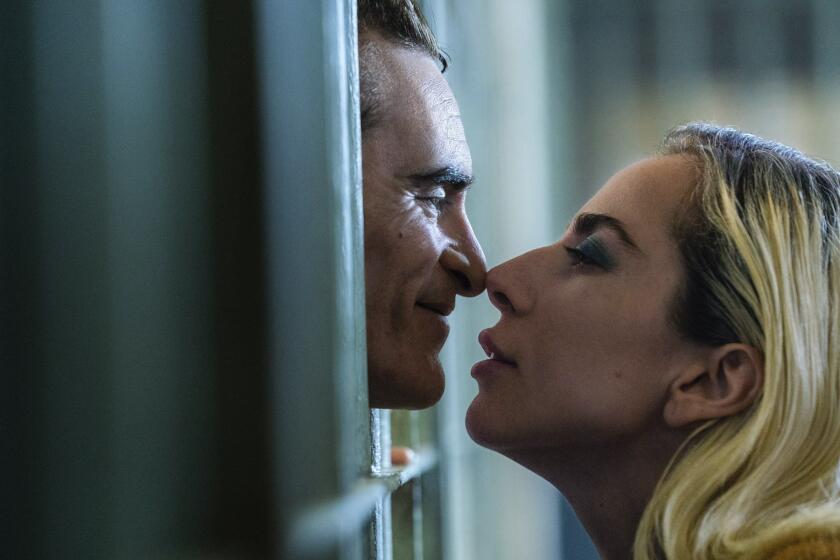DVDs showcase the late work of Roberto Rossellini
Roberto Rossellini is commonly regarded as the founding father of Italian neorealism. It’s a lofty label, since the movement was among the most influential in all of film history, but also one that doesn’t quite do justice to his long, multifaceted career.
The intense and unadorned films that Rossellini directed as Italy was emerging from the rubble of World War II -- “Open City” (1945), “Paisan” (1946), “Germany Year Zero” (1948) -- sealed his international reputation. Comparatively neglected, especially in this country, are the works that followed as he moved away from the supposed tenets of neo-realism and started to dabble in melodrama and artifice.
He is known for marrying Ingrid Bergman, who abandoned Hollywood for him, but the landmark films they made together in the 1950s, such as “Stromboli” and “Voyage in Italy,” are not available on American home video.
He embarked on yet another chapter in the 1960s: a cycle of television movies that set out to educate viewers on nothing less than the history of Western civilization and the evolution of Western thought.
It can be hard to keep the Rossellini legacy in focus these days, partly because of the confounding volume and variety of his output and partly because many of his films have been unseen for so long, prints having fallen into disrepair and out of circulation. He died in 1977, at age 71, and an overdue revival began in 2006, the centenary of his birth.
A large-scale Rossellini retrospective toured North American repertory houses that year, and his daughter, Isabella Rossellini, teamed with director Guy Maddin to produce a poignant tribute called “My Dad Is 100 Years Old.”
Now, some of the less-traveled byways of the Rossellini filmography are coming to light on DVD. Lionsgate recently issued a pair of obscurities, “Where Is Freedom?” (1954) and “Blackout in Rome” (1960). This week the Criterion Collection releases the best-known of his late films, “The Taking of Power by Louis XIV” (1966), along with a boxed set, on the midprice Eclipse label, of more historical works from the 1970s.
Rossellini’s career-capping project came about from a crisis of confidence and what he perceived as a crisis in the culture at large. In 1963, he called a news conference in Rome and announced that “cinema is dead.” From that point on he would make films for television, a more democratic medium, and devote himself to history lessons of a sort: portraits of great leaders and thinkers.
In the final 15 years of his life, he assumed the role of a one-man encyclopedia, with a series of intensively researched and flatly analytical movies about, among others, Jesus, Socrates, Garibaldi, Descartes, Pascal, St. Francis and St. Augustine. “The Taking of Power by Louis XIV” often called the greatest of the historical films, recounts the Sun King’s ascendance to the throne at age 22.
Despite Rossellini’s avowed pedagogical intent, these films are hardly conventional biopics -- they are more interested in distilling and illuminating moods, ideas and states of mind than ticking off the key events of a life. “Louis XIV” chronicles with exquisite precision the machinations that follow the death of the chief minister Mazarin, as Louis scripts and stage-manages the spectacle of his takeover.
Martin Scorsese, who called it a touchstone for “GoodFellas,” has said it is “as close as Rossellini ever got to the gangster genre.”
Two of the three films in the Eclipse set also take place in 17th century France: “Blaise Pascal” (1971), a portrait of the mathematician, philosopher and strict Jansenist, torn between science and faith, and “Cartesius” (1974), about the philosopher Rene Descartes, who also pops up in the Pascal film and whose “I think, therefore I am” is as fitting a motto as any for Rossellini’s cinema.
The third, “The Age of the Medici,” a 4-hour, 15-minute trilogy, documents the flourishing of the sciences and the arts and the behind-the-scenes political maneuvering in Renaissance-era Florence.
Rossellini’s late work is long overdue for a wider audience. His history project was a retreat from the big screen but a massive undertaking nonetheless, perverse in its grandiosity and yet perfectly logical for an artist who, despite his claims, evidently still believed in cinema as a means of understanding the world.
--
More to Read
Only good movies
Get the Indie Focus newsletter, Mark Olsen's weekly guide to the world of cinema.
You may occasionally receive promotional content from the Los Angeles Times.







